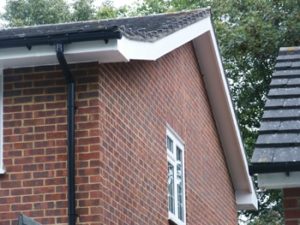This Is The Advanced Guide To Fascia And Soffit Upgrades

본문
Fascia and Soffit Upgrades: Enhancing Your Home's Exterior
Introduction
When it pertains to home improvement, many property owners concentrate on the more noticeable elements like siding, windows, and doors. However, similarly essential but typically overlooked areas are the fascia and soffit. Updating these parts can substantially improve a home's exterior aesthetic appeals, improve functionality, and offer better security versus the elements. This short article will explore the value of fascia and soffit, the different upgrade options readily available, and how these improvements can benefit your home.
Comprehending Fascia and Soffit
What is Fascia?
Fascia refers to the horizontal board that runs along the roofing system's edge. It is typically the noticeable trim used to connect the roofline to the home's exterior walls. The fascia board plays an essential role in supporting the lower edge of the roof, connecting the seamless gutters, and typically adding an ending up touch to the architectural style of the house.
What is Soffit?
Soffit is the material that covers the underside of overhanging eaves. It fills the space in between the roofline and the exterior wall, providing complete coverage while enhancing the total appearance of the eaves. Soffits are essential for ventilation, as they permit air to stream into the attic space, helping to preserve correct temperature balance and prevent moisture buildup.
Why Upgrade Fascia and Soffit?
Upgrading fascia and soffit parts can yield a host of benefits, including:
- Aesthetic Appeal: New fascia and soffit products can match the style of your home, elevating its curb appeal.
- Protection from Moisture: Poorly kept fascia and soffit can rot or end up being infested with bugs. Updating with moisture-resistant materials provides much better defense.
- Improved Ventilation: Well-designed soffits boost attic ventilation, which can cause energy savings while minimizing the risk of ice dams in winter.
- Increased Property Value: A visually enticing and well-kept exterior can boost your home's market worth.
- Lowered Maintenance: Modern materials often have better durability and require less upkeep compared to conventional wood choices.
Upgrade Options: Materials and Styles
When considering fascia and soffit upgrades, house owners have different materials and styles to select from. Below is a table summarizing the most common options:
| Material | Description | Pros | Cons |
|---|---|---|---|
| Vinyl | Plastic product that imitates wood textures | Low maintenance, moisture-resistant | Can fade with time |
| Aluminum | Lightweight metal readily available in numerous colors | Resistant to corrosion, lasting | May dent easily |
| Wood | Traditional option that uses natural appeal | Simpler to deal with, visually pleasing | Needs regular maintenance |
| Fiber Cement | Composite product that mimics wood | Extremely resilient, weather-resistant | Much heavier, may need special tools |
| PVC | Light-weight plastic alternative | Easy installation, resistant to rot | May lack color range |
Installation Process
Updating fascia and soffit needs an in-depth approach to guarantee durability and correct function. Here's a brief overview of the installation process:
Assessment: Evaluate the existing condition of your fascia and soffit. Try to find signs of rot, damage, or insects.
Product Selection: Choose the suitable products based upon visual appeals, maintenance preferences, and budget.
Preparation: Remove the old fascia and soffit materials thoroughly. Make sure all locations are tidy and totally free of debris.
Installation:
- Install the brand-new soffit panels, making sure correct ventilation.
- Connect the fascia boards, protecting them securely and inspecting for any gaps where moisture might get in.
Completing Touches: Paint or seal the brand-new products as needed and install rain gutters, guaranteeing they are securely connected to the fascia.
Regularly Asked Questions (FAQs)
1. What is the perfect time for fascia and soffit upgrades?
The ideal time for these upgrades is normally during spring or early fall when climate condition are moderate. Avoiding extreme temperatures can assist make sure the products set correctly and preserve their shape.
2. How do I understand if my fascia and soffit need to be changed?
Indications of damage consist of peeling paint, drooping boards, water damage, or noticeable spaces. If you can see rot or bug infestations, it's time to consider an upgrade.
3. Can I install fascia and soffit upgrades myself?
While some property owners may feel confident in DIY installations, employing professionals is frequently recommended. They bring expertise and ensure that the installation meets regional building codes.
4. What should I try to find in a contractor?
When picking a contractor, look for licenses and insurance, ask for referrals, and check out evaluations. It's advantageous to get multiple quotes to guarantee you get a reasonable rate.
5. Just how much does it generally cost to upgrade fascia and soffit?
The expense can differ considerably based upon elements such as product option, labor costs, and the total size of your home. Typically, property owners might invest in between ₤ 1,500 and ₤ 5,000.
Updating fascia and soffit components is an essential element of home maintenance that need to not be ignored. Through improved aesthetics, improved protection, and increased home worth, these upgrades serve a vital role in protecting the integrity and appeal of your home. By understanding your alternatives and the advantages they provide, property owners can make informed choices to boost both the charm and functionality of their home.


댓글목록0
댓글 포인트 안내